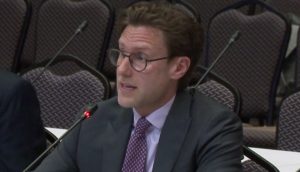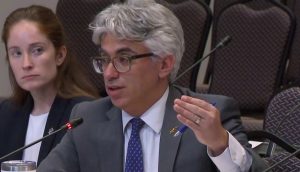As the Saskatchewan film and TV community continues to react to the provincial government phasing out its film tax credit, opinion is divided between those insisting the local industry will cease to exist as talent flees, and others resolving to work harder as they stay put.
“This will effectively kill the industry and have a chilling effect on employment and revenues for businesses that depend on the sector,” Robert King, chairman of the Directors Guild of Canada’s Saskatchewan district council, said Thursday in a statement.
Local producers, sounding the alarm over the provincial government cut, predicted the local production sector would be hollowed out as they went elsewhere to shoot projects.
“The entire industry will have no option but to move to another jurisdiction that has the incentives,” Kevin DeWalt, head of indie producer Minds Eye Entertainment, told Postmedia News in Regina.
The producers of the CBC sitcom Insecurity also told CBC.ca that they would consider shifting production to another province if they received a third season renewal from the public broadcaster.
But others needing to remain in the fast-growing province said they will do so.
“We had committed to buying SCN (Saskatchewan Communications Network), we believe it’s a good asset for us, and it fills a hole in our distribution in Saskatchewan,” Scott Moore, president, broadcast, Rogers Media, said Thursday in the wake of the provincial film tax credit cut.
Rogers Media announced the SCN purchase in January to launch Citytv Saskatchewan and expand its reach in what it considers a key market.
Moore said he was caught off-guard by the tax credit decision, but remains committed to SCN’s broadcast obligations under the proposed new ownership arrangement, pending CRTC approval of the deal.
“Our commitment to Saskatchewan is because we think it’s a great market. We want access to those eyeballs. We’re committed to spending a certain amount of our gross revenue to local production,” he said.
Moore conceded the provincial government cost-cutting will impact local producers who are contracted to make programming for SCN.
“The tax credit will make it more challenging for more local production companies, but businesses will find a way to work in the environment they are in,” he predicted.
Moore added that, rather than commission 100 hours of programming from local producers in a given year, the tax credit cut may mean only 90 hours of shows make it to air as indie producers find it more difficult to stretch their production dollars.
From Playback Daily
























